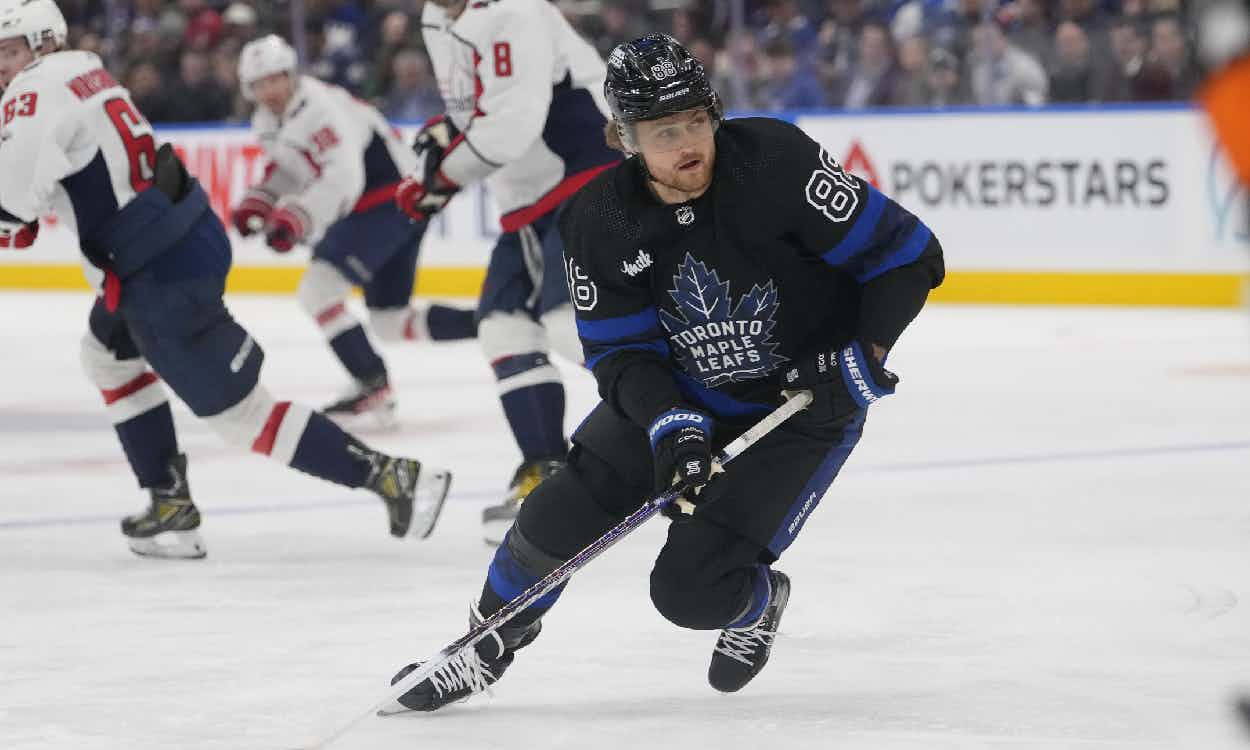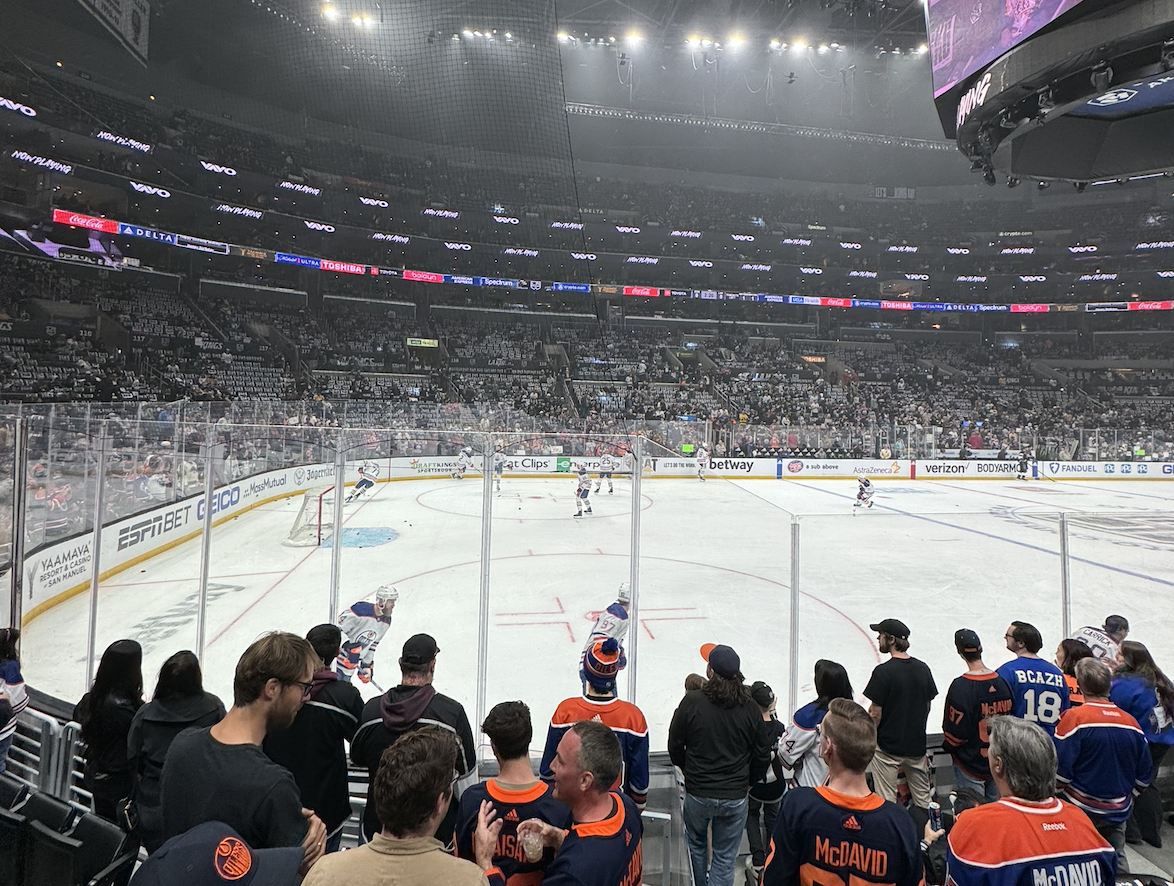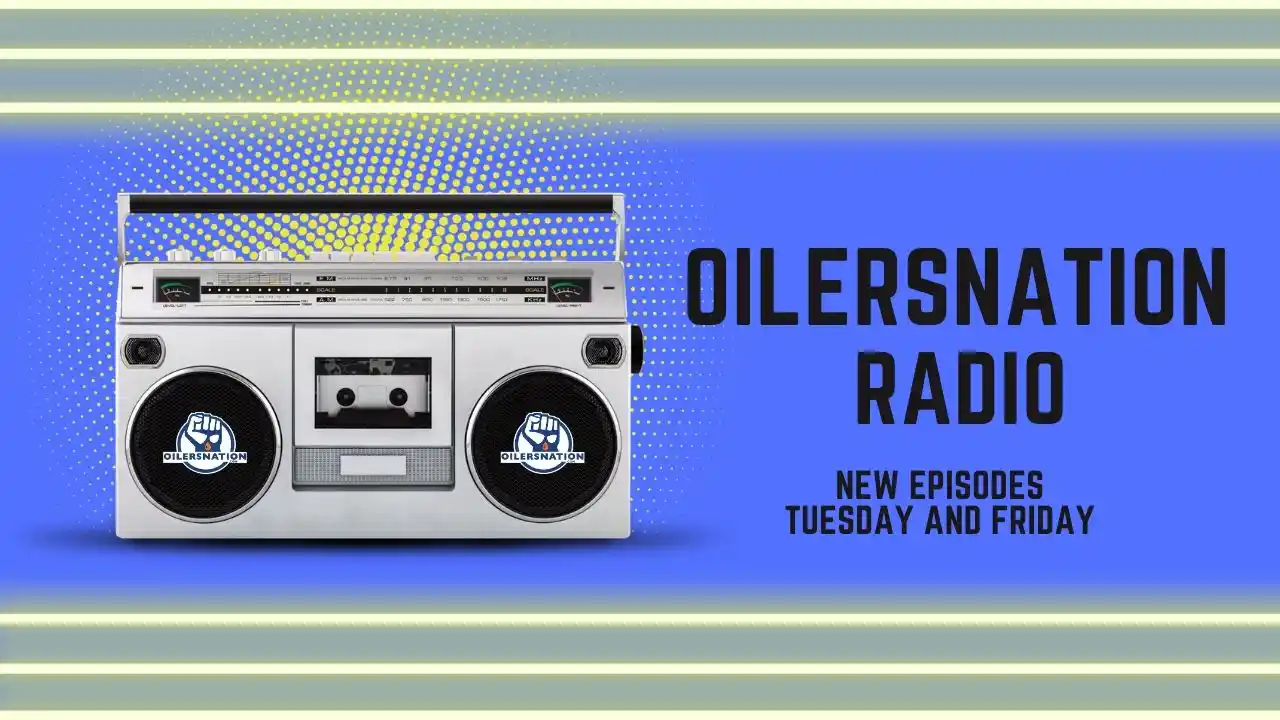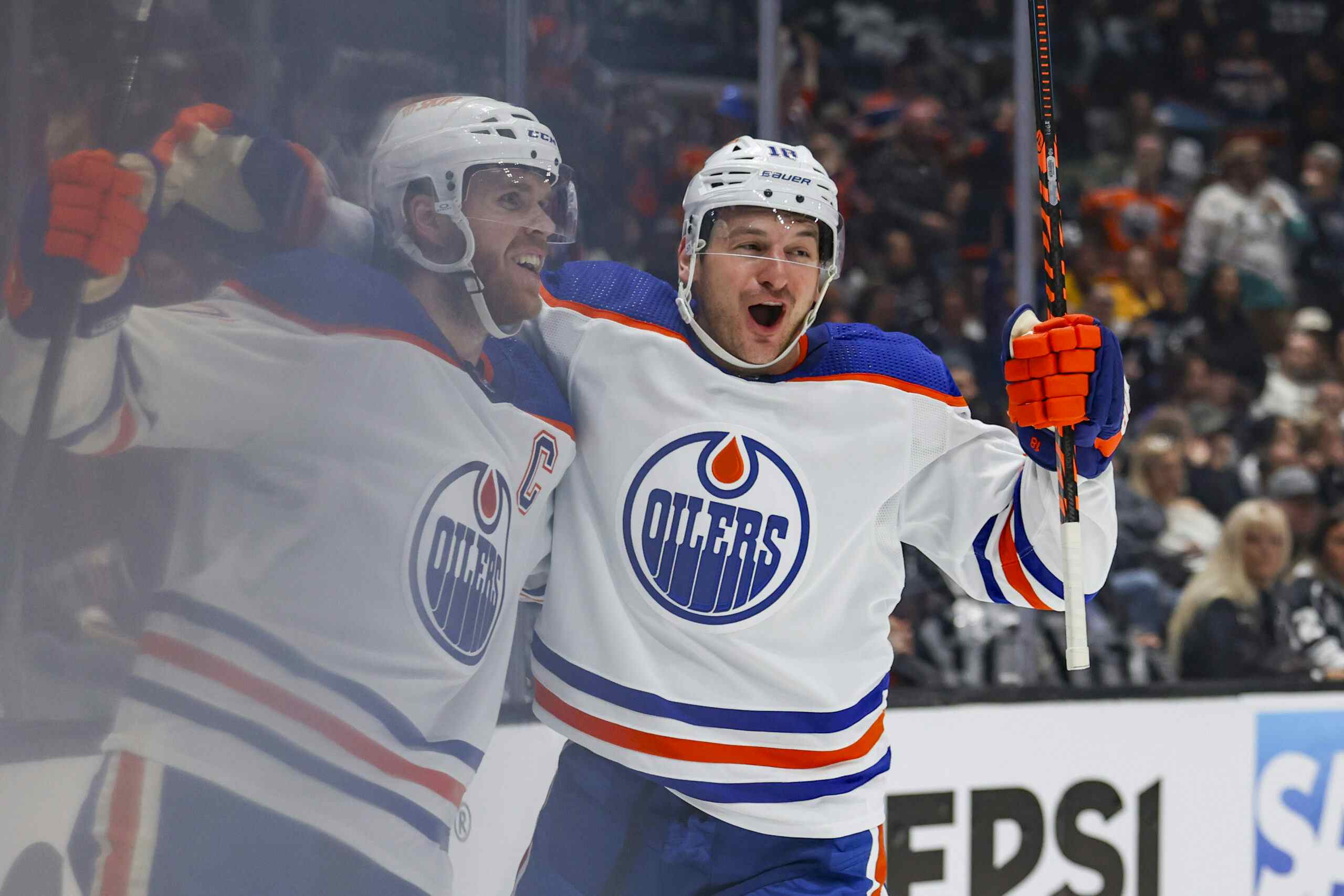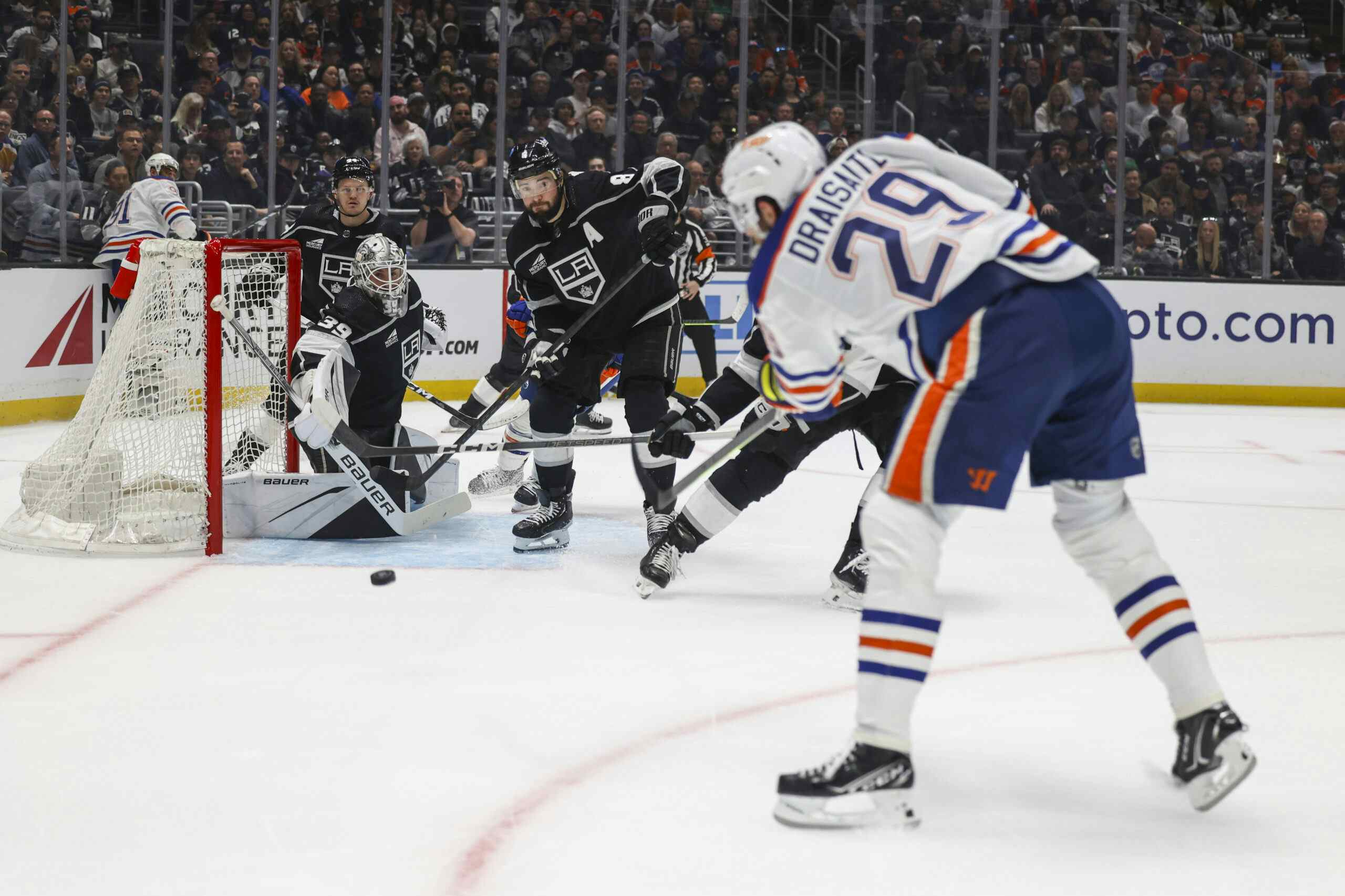WHAT HAS SCOTT HOWSON LEARNED?
By Jason Gregor
11 years ago
Scott Howson spent five years and eight months as General Manager of the Columbus Blue Jackets, before being fired in February, and on Monday he officially returned to the Oilers as VP of Hockey Operations.
What has he learned since leaving Edmonton? What will he bring to the organization?
Howson came on my radio show on Monday to discuss his role with the Oilers, what he’s learrned since he left and what he plans to do to help the Oilers return to the playoffs.
Howson came on my radio show on Monday to discuss his role with the Oilers, what he’s learrned since he left and what he plans to do to help the Oilers return to the playoffs.
Gregor: You left Edmonton six years ago. What have you learned in the last six years that could help you contribute even more this time around?
Howson: I think it’s going to be a different role this time. Anytime you’ve had the privilege of being a General Manager in the league and we went through some tough times in Columbus, just like we’ve seen here in Edmonton, you learn a lot. You’ve gotta plough through that, you’ve gotta be strong, and you’ve gotta persevere. I’ve learned quite a bit there and I’m certainly anxious and excited to bring what I’ve learned and also to keep growing here and help move this team in the right direction.
Gregor: What did you learn specifically?
Howson: I think nothing is easy in this business, we all know that. Nothing is easy in any business, but certainly there are not enough players around. Every team will tell you the same thing, that there are not enough good players around. You’ve got to be assertive, you’ve got to be aggressive and you’ve got to be direct. I think those are all things that I’ve learned. You’ve got to build an organization that has trust, honesty, and directness. Those are the types of things that I think I’ve learned in Columbus.
Gregor: Craig MacTavish said that it’s time for bold moves. Is it fair to say that when a conversation like that comes up, you really have to do background checks and understand that the player you’re bringing in, not only is a good player on the ice, but has to be somebody that will fit into the locker room? How much background research did you do when you pulled off that Rick Nash trade?
Howson: We did a lot. You talk to a lot of people. There’s so much movement in this game. There’s always somebody that somebody knows that you can talk to. It’s not just talking to one person; it’s talking to three, four, five people and getting as many insights as you can into people. Having said that, people react differently to different situations.
You’ve just got to do your homework. You’ve got to bring in all the knowledge and information you can and then you make the best decision possible at the time. Nobody’s always right in this business. It’s a tough business. You’ve got to be right, we’re paid to be right and we’re going to make sure that we’re certainly more right than wrong.
OUTSIDER VIEWPOINT

Gregor: You have watched the Oilers as an opponent for the last few years. Give me your assessment of this team. Let’s start with what you think are the keys, the main focal points, moving forward that you like about the make-up of the Oilers right now.
Howson: Well, we have the most difficult thing to acquire; we have the top end, young talent. That’s the hardest thing to acquire. This game is coached so well and people defend so well, the goaltending keeps getting better, it’s hard to score, it’s hard to create offence, it’s hard to generate chances. When you’re talking about players like Ryan Nugent-Hopkins, Taylor Hall, Jordan Eberle, Sam Gagner, and we certainly hope Nail Yakupov, you’re talking about high-end skill that all teams need and require to win. I think it starts there. I don’t think there’s any doubt we have to bring in more competitive people and keep raising the competitive level. This league is so hard to win in, it takes special people to do it and it takes competitive people to do it.
Gregor: Let’s go into that a little bit more- “competitive people.” What’s your definition of a competitive player in the NHL?
Howson: A player who is strong on the puck, wants the puck, will do everything he can to keep the puck, and really, really cares about winning.
Gregor: How do you assess that?
Howson: You can see it on the ice. You can see it in body language, you can see, certainly, hardness on the puck and strong on the puck. You can see by doing your scouting and watching video.
Gregor: When you were scouting the last few months or few weeks, what were you looking at when you were scouting?
Howson: I did a lot of college scouting. I would say I spent the bulk of my time watching college hockey. This was a very busy time for college hockey. You had the league championship tournaments, you had the regional tournaments and then you had the frozen four last weekend in Pittsburgh, which I was at. There were a number of free agents we were interested in. Some of them we were in on the bidding, we didn’t have any success this time, but we saw some players that we liked and we went after them.
BLUELINE….
Gregor: You talked about the competitive players that you need. What about building the blue line for the Edmonton Oilers? Building the back end might be the hardest thing to do, other than acquiring that top- end skill level. Discuss the blue line and the type of players you think you need on the back end.
Howson: Ya, I think you’re right. No team is going to win in this league without a strong defence. I think that’s an area where we have to improve and I think we’re going to improve. If you look at the players, I can tell you as an outsider, if you look at the players coming up the pipeline in the Oilers’ system, they are coming.
It’s such a hard position to play; you can’t expect it to be much immediate help. But when you’re talking Oscar Klefbom, he’s a world class player for his age level. Martin Gernat, David Musil, there’s a lot of good, young defencemen that are coming. We’ve just got to make sure that we’re patient with them, we put them in places where they succeed, we don’t rush them, and when they’re ready they’ll be part of a very good Oilers’ defence.
Gregor: It is the one position you don’t want to rush. Klefbom is maybe the only one who has a chance to play next year. Martin Marincin, Musil, Gernat, those guys are two, three years down the road. You look at what Pittsburgh did, moving a guy like Joe Morrow for an established NHL player. Do you see moving one of them because you can’t win with all kids; you need to have some proven guys in the mix?
Howson: Ya, when you have depth at a position like this, you can consider that. Look, we’re going to consider all opportunities that come our way. We’re not going to hang up the phone on anything. We’re going to deliberate and debate and talk about it. But if you do have a position of strength, it’s an area where you can deplete that a little bit to strengthen another area where you’re in a position of weakness.
Gregor: Can you define exactly what your role will be with the Oilers moving forward?
Howson: I think it’s going to evolve here, certainly in the initial discussion. I’m going to bring what I learned in Columbus and we’re going to implement some of the structure I had there, some of the systems and policies we’re going to talk about. Then it’s just helping Craig in whatever area I can. I’m sure it will involve a little bit in the amateur side. It will certainly involve the development side; it will involve the college free agent side, and the pro side. So it’s not going to be just one thing, it’s going to be a lot of things. I can’t wait to get started.
Gregor: How do you feel you’ll be different as a regime this time, compared to beforehand? What has changed about the game and what have you guys learned collectively that can make you better?
Howson: Well I think we all have different experiences than we had six or seven years ago. I’ve been a General Manager in the league; I think that’s an invaluable experience to any organization. You look at what Craig MacTavish has done; he’s got his MBA, which is quite a feat. I think it expands your horizons when do something outside of the hockey world.
We become very narrow-minded in this game because all we think about his hockey. So he had the opportunity to go and expand himself. He’s gone to another organization. That’s another advantage that we both have. We have both been in another organization and seen how things operate outside of Edmonton. For me, this is where I grew up. This is all I knew. Now I know a little bit more. I think we’re broader. Obviously as you gain experience, hopefully you learn and you get smarter.
WHAT YOU’VE LEARNED…

Gregor: Can you go into anything specific that you learned from the Columbus organization, that you felt you lacked the first time here, that you’d like to bring in to the Edmonton organization now?
Howson: I’d prefer not to get into anything specific. I’d really have to think about the question. This business is about people and about trust and about good people, smart people, and people that have good eye. Craig said it well, I think in the press conference, the most important thing we can do is find players and bring players here. That’s our job and that’s what we’re going to do.
Gregor: When you looked back on your time in Columbus, was there one thing you looked back and said, ‘I’ve really learned from this and in the future I wouldn’t do it again.’?
Howson: I think you have to be careful with free agency. I think it’s a dangerous animal. I’m not saying it should be ignored, because I really think you can add to your team in it. When you get to the free agent market, you overpay and you overpay in terms of salary, and you usually overpay in terms of term. Those things can set your team back.
Gregor: Do you think it’s better off then, trying to negotiate a trade with another GM? Even though it may be harder, you may not end up with an albatross of a contract as far as length and term?
Howson: Ya, I think at times that’s certainly an option. It should get a look if we’re going to explore everything. There’s a time for free agency and there’s a time to pull back and be patient. We’re going to deal with a market this summer where the cap comes down, so there’s going to probably be less money available in the system. It might be a time this year where it’s more of a buyer’s market, we’ll see. I know the trend certainly has been, and it’s trending this way this year, a lot of the good players get signed. We’ll see what the compliance buyout market brings and then we’ll go from there.
Gregor: Did anything change in your philosophy that you had when you went there, but now that you’ve come back you look at differently?
Howson: I think you realize how hard it is when you sit in the GM chair and how difficult this is. It looks easy from the outside at times. It is a difficult business, it’s a difficult position. It’s a wonderful position and as I said many times before, it’s a privilege to be a General Manager in this league. What have I learned? I’ve learned that you’ve got to be assertive, you’ve got to be aggressive, and that you’ve got to make sure you do your homework.
WRAP UP
It will be interesting to see how Howson and MacTavish re-shape this organization. Klefbom is clearly their best prospect not in the NHL, and every scout that I’ve talked to recently believes he’ll play in the NHL next year. The key will be bringing in at least one proven veteran D-man to augment this D corps. That has to be priority number one.
The "free agency can be a dangerous animal," comment caught my attention. I’m guessing he is referring to James Wisniewski. I doubt the Oilers shy away from free agency, but they will be more diligent in deciding on how to sign. They can’t afford another summer like 2011.
RECENTLY BY JASON GREGOR
- GDB 42.0: PLAYING FOR PRIDE
- THE CAPTAIN SPEAKS
- WEEKEND WRAP: MACTAVISH IS BACK AS GM
- DAY OF MOURNING
- GDB: STAYING IN THE RACE
- ARE THE OILERS IMPROVING?
- GDB 39.0: JUST WIN
- GDB 37.0: DOWN TO THE DIRTY DOZEN
- OILERS: GHOST RIDING THE WHIP
Recent articles from Jason Gregor

